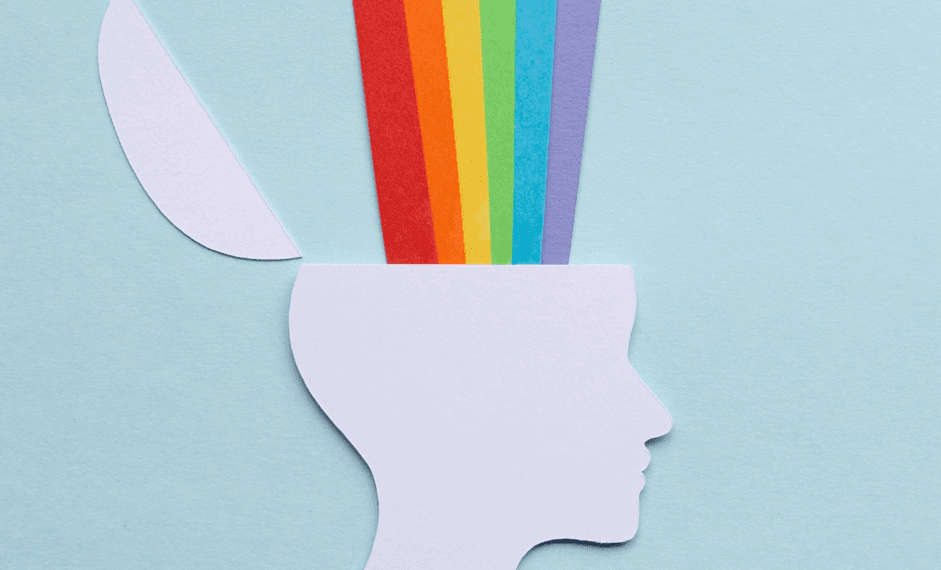Full Disclosure: Clicking on these links could mean a tiny commission for me, at no extra cost to you.
Brain health is shaped over a lifetime, not just during aging. Habits formed in early adulthood can significantly influence how the brain functions in later years. While genetics play a role, lifestyle choices remain one of the most important factors in maintaining cognitive resilience over time. Understanding how to support long-term cognitive health at each stage of life can help reduce the risk of decline and support better mental function as you age.
Join The Inner Peace and Power Challenge
Curious about tapping? The Tapping Solution’s 6-Day Inner Peace and Power Challenge In this 6-Day Challenge, you'll tap into a deeper connection to your inner strengths & emerge more aligned with your truest, calmest and most powerful self. These bite-sized, easy-to-follow videos guide you step-by-step—no experience needed.
Tap along and feel the shift. Whether you’re brand new or just need a refresher, this free series will leave you feeling more grounded, calm, and empowered.
In Your 20s and 30s: Build Healthy Foundations
The brain reaches full maturity in the mid-20s, making this an ideal time to establish healthy routines. Prioritizing regular physical activity, sleep, and stress management supports optimal brain performance and sets the stage for long-term cognitive health. Studies show that aerobic exercise can increase hippocampal volume, which is vital for memory formation. Adequate sleep (typically seven to nine hours per night) is also essential, as this is when the brain clears out waste proteins that can accumulate over time.
Nutrition also plays a central role. Diets high in processed foods and sugars can increase inflammation and contribute to cognitive decline later in life. In contrast, diets rich in vegetables, omega-3 fatty acids, lean proteins, and whole grains support brain cell function and communication.
In Your 40s and 50s: Monitor Health and Manage Risks
Midlife is a critical period for preventing long-term cognitive issues. Chronic conditions such as hypertension, type 2 diabetes, and high cholesterol have been linked to increased risk of dementia. Managing these conditions through medication, lifestyle changes, and regular checkups can reduce their impact on long-term cognitive health. Cognitive stimulation is also important during these years. Learning new skills, reading complex material, or playing strategy-based games keeps the brain challenged and engaged.
Stress becomes a growing concern during midlife, especially with professional and caregiving responsibilities. Chronic stress can elevate cortisol levels, which may interfere with memory and emotional regulation. Practices such as mindfulness meditation and deep breathing can support emotional balance and long-term cognitive health.
In Your 60s and Beyond: Stay Active and Connected
Later life requires ongoing attention to mental, physical, and social activity. Regular movement, even low-impact activities like walking or tai chi, supports blood flow to the brain. Social interaction is equally important, as isolation has been linked to faster cognitive decline. Joining community groups, maintaining friendships, or volunteering can offer meaningful engagement.
It is also wise to monitor signs of cognitive change and seek medical input when needed. A functional neurologist can assess neurological function and help identify early signs of cognitive impairment that may not yet affect daily life. Early detection allows for timely intervention and support. Staying informed about your cognitive health empowers you to make decisions that may preserve independence and quality of life.
Ensuring Long-Term Cognitive Health Starts Here
Protecting the brain (and long-term cognitive health) is a lifelong process that benefits from consistent effort, proactive health management, and intellectual curiosity. While no single habit guarantees perfect cognitive function, a combination of healthy routines and regular self-care can make a measurable difference in how the brain ages. For more information, look over the accompanying resource below.
Additional Resources
At Anxiety Gone, we believe in healing together. We’ve partnered with trusted wellness organizations to bring you the most effective tools, insights, and support. Some links may earn us a commission — always at no extra cost to you.
Join The Club
Connect with our private self-care community for daily support, exclusive tips, and inspiration. Join us today
Talk Therapy
Get matched with licensed therapists online through BetterHelp and begin your healing today. Start now
Hims/Hers
Receive personalized, affordable mental health care + medication from home — no insurance required. Learn more
Mental Health, Right to your Inbox
Subscribe to our newsletter for a place to rest your mental health and find ways to support your journey. Sign up
Emotional Freedom Technique
Tap your way to calm with scientifically backed stress relief. Our readers receive a 14-day free trial! Try EFT now
Mindfulness App
Access 2,000+ guided practices to support your mental health wherever you are + exclusive discount when you upgrade Try it
Online Breathwork
Experience calm and reset your nervous system with guided sessions and receive your first month free . Get started
Find a Helpline
If you need immediate support, visit our directory to find help near you. See helplines









Discussion about this post